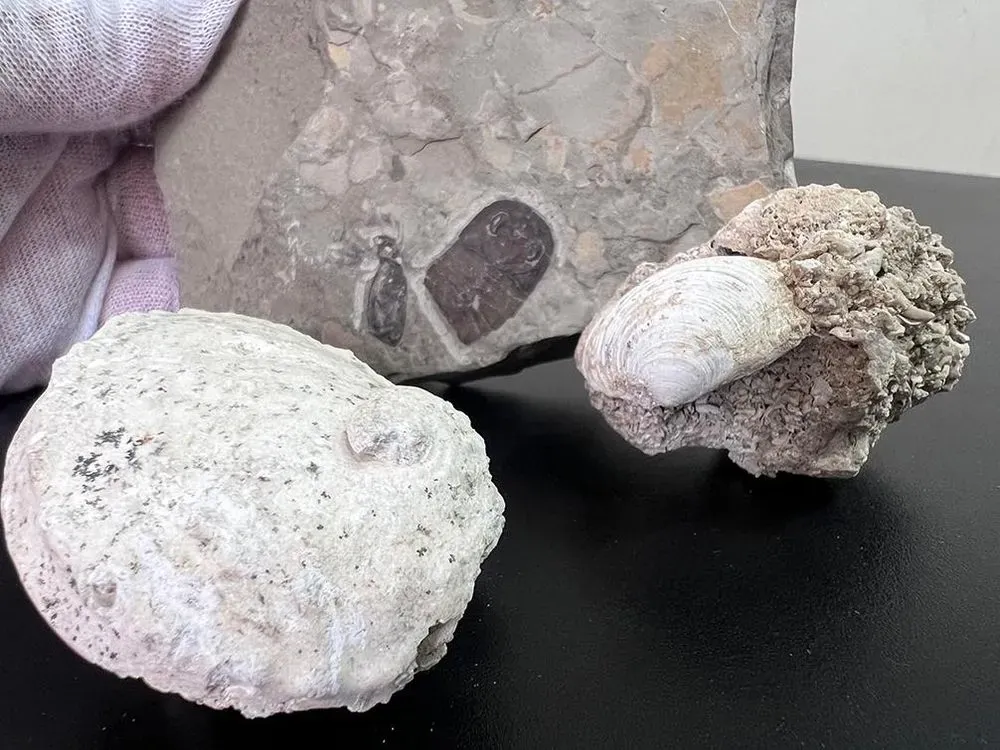A resident of Ternopil tried to mail abroad fragments of geological rocks with fossilized prints of prehistoric creatures. This was reported by Kyiv Customs, UNN reports.
Details
Kyiv customs officers prevented the illegal shipment abroad of fragments of geological rocks with prints of prehistoric creatures of scientific and cultural value.
Ten fossilized fingerprints were found during customs control of three international mail items that were heading from Ukraine abroad. The sender of two parcels to Thailand and the United States was the same resident of Ternopil, while the third parcel was heading from Kyiv to Spain.
Kyiv Customs sent the finds to the National Museum of Natural History of Ukraine for examination. According to the museum's experts, the four fossils (fossils) that were sent to Spain are rock tiles with a collection of rhacoscorpions that have almost complete shells. One of the tiles is unique, as it contains the remains of three rhacoscorpions with limbs and samples of their heads.
The two fossils that were bound for Thailand turned out to be whole mollusks. Whole specimens are not common and have unique scientific value. Another fossil is a fragment of a rhacoscorpion shell.
The parcel to the United States contained three more fossils, which experts identified as red sandstone tiles with the carapaces of six so-called "Devonian fish" with unidentified fragments.
The age of all paleontological samples ranges from 408 to 443 million years. They originate from Podillia, the Dniester River basin.
Customs officers drew up reports on violation of customs rules and seized the paleontological treasures.
Add
Ukrainian legislation does not provide for the civil circulation of archaeological finds; all archaeological objects are the property of the state.
